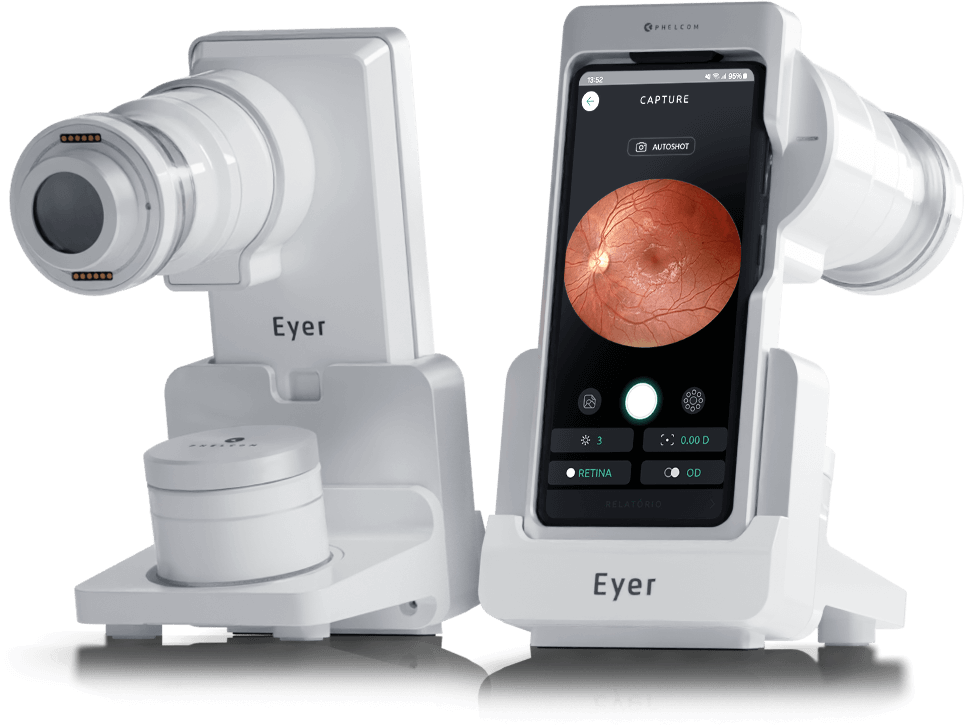Doctors have been facing a doubt with the increase of telemedicine use since the beginning of the pandemic: after all, how to keep humanized care in a teleconsultation?
In fact, despite physical distancing, assuring consultation quality is essential. Yes, it is possible to work humanly even through screens!
For that, you can follow some tips. Among them, be more careful with communication and avoid distractions.
Here follow some ways to provide an excellent online experience to patients:
1. Find a quiet place
Undoubtedly, it is important to define a quiet place to assure humanized assistance in a teleconsultation. That is to say, without external noise or interruptions during service.
It may be in the clinic itself or another space you consider quieter.
Another advantage is the set out, since all needed materials and tools are in the same place together.
2. Offer a good experience
The patient’s journey begins much before he arrives your office. In fact, it starts when he/she identifies symptoms, decides to schedule an appointment and looks for a good specialist.
In this journey, you may ease the scheduling. For example, offering the possibility to set an appointment online and send notifications on its date, via SMS or WhatsApp.
It is important to care for some details in order to assure quality and humanization during service. For example, have a good internet connection. This way you avoid connection failures during the consultation.
Other advantages are the electronic record, with easy access to all the patient information, as well as digital prescriptions and certificates.
All this contributes to provide customers a good experience.
3. Ensure patient data security
Utilizing more popular and accessible means of communication is usual in the pursuit of humanized service with teleconsultation. As, for example, SMS, WhatsApp, Skype and Zoom.
Nevertheless, one of the demands on using telemedicine is assuring patient data security. Among them is following norms of the General Data Protection Regulation (GDPR). Unfortunately, such tools are not the most suitable, though.
Therefore, search for telemedicine systems that offer security. For instance, there are programs that already count on teleconsultation platforms, online scheduling and electronic reports, inter alia.
4. Seek a more friendly communication
Remote communication, even if verbal, may generate comprehension difficulties at moments. When the communication is nonverbal, there are even more chances of conflicts due to misunderstanding.
Therefore, it is necessary to adapt how you talk. One tip is keeping the same affectionate and empathetic communication style in a teleconsultation. Whether through video conference, by phone or instant messages. In the latter case, you may reread the content more than once before sending it.
In a video call, seek to gesture in order to pass the message more clearly and not to give the impression that the teleconsultation failed. Another relevant point is raising hands before interrupting the patient. Therefore, each person speaks in his/her turn, decreasing possible misunderstandings.
5. Avoid possible distractions
The patient may be disturbed if he/she notices he/she does not have your full attention during the teleconsultation. Thus, remove possible distractions at service time. For example, silence or turn off your cell phone and close social medias.
If you are in a videoconference, always look at the screen. In case you are communicating via instant message, take time to care exclusively for it. That is, with no gaps.
6. Ask for feedback and be receptive
Who better than the patient can provide feedback on how humanized your care is at the teleconsultation? Therefore, ask for feedbacks at the end. In addition, be receptive for whatever is mentioned. Keep up with what is considered good and seek solutions for critical issues.
Sending a survey at the end of the consultation is another possibility. That way you can identify the level of satisfaction and define strategies for improvements.
7. Search for further knowledge on telemedicine
Finally, search for further knowledge on telemedicine. Undoubtedly, that activity has been used more and worldwide, with new technologies and tools released to market all the time.
In Brazil, it has earned space as an emergency due to the pandemic. Nevertheless, a definitive and broad regulation is to be debated right after the scenario changes.
Thus, it is worth studying this area, which has already become a reality.






